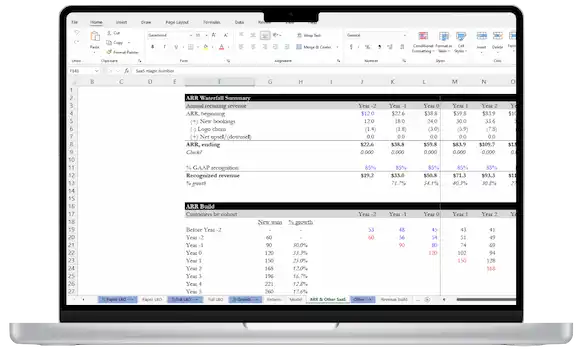Investment Banking Career Path
Investment banking offers a dynamic and challenging career path in finance.
From entry-level positions to senior management roles, the industry offers a range of opportunities for career growth and advancement.
As a former investment banker at Deutsche Bank, I have personal experience navigating the investment banking industry and can provide insight into the responsibilities and expectations of each role, as well as the promotion process.
Through this guide, I aim to provide a comprehensive overview of the investment banking career journey and provide valuable information for individuals considering a career in this exciting field.
Investment Banking Entry Level Jobs
Investment banking is a challenging and dynamic field that requires strong analytical and financial skills, as well as a deep understanding of the financial services industry.
Entry level positions in investment banking are analyst and associate roles. These include full-time and internship roles:
- Investment banking analyst (for undergrad full-time)
- Investment banking summer analyst (for undergrad interns)
- Investment banking associate (for MBA full-time)
- Investment banking summer associate (for MBA interns)
Investment Banking Internship
Investment banking internships are highly competitive programs that offer students a unique opportunity to gain hands-on experience and exposure to the investment banking industry.
These programs are designed to provide students with a real taste of the full-time role. In the internship, you’ll do financial analysis, deal execution, and pitch preparation. You may even get some exposure to client pitches or client management.
Investment banking internships typically last between 10-12 weeks and are divided into two categories:
- Summer analyst programs for undergraduates
- Summer associate programs for MBA students
These programs are an excellent way for students to build their skills, make valuable connections, and explore a potential career path in investment banking.
Depending on market conditions, these programs are also usually the best path into the industry. That’s because usually most full-time roles will be filled from the intern class.
Full-time offer rates in the internship tend to be quite high historically (70%+), though this can certainly be much lower depending on market or other conditions.
Investment Banking Analyst
The investment banking analyst is typically the “lowest” level on the team. Analysts are hired directly out of undergrad.
Though they are entry-level employees, investment banking analysts play a critical role in executing transactions and providing support to senior bankers.
In terms of responsibilities, investment banking analysts are tasked with several responsibilities, but primary roles include:
- Building financial & valuation models
- Credit & financial analysis to support deal diligence (e.g. creating a “cap table”)
- Overseeing and viewing “data rooms” which house diligence materials
- Creating “pitchbooks” for clients and prospective clients
- Other forms of company research
- Sometimes admin tasks like scheduling or coordinating calls, meetings, or other logistical details
Basically, your job as an analyst is to do anything and everything to support the senior and mid-level bankers in winning and executing deals.
To succeed in this role, individuals must possess a great attitude, strong analytical skills, attention to detail, the ability to work well under pressure, and a strong work ethic. In a competitive industry like investment banking, there is low margin for error.
The investment banking role is typically designed to be 2-years in duration. Afterwards, many investment banking analysts are offered the opportunity to continue their employment with the firm for a third year following two years of service. After a successful third-year, you can then be offered a role as an investment banking associate, which is considered a “career track” position.
Investment Banking Associate
The primary duties of an investment banking associate are similar to those of an analyst, with a focus on performing financial analysis, creating professional presentations, and providing support during transaction execution.
The biggest difference is that while analysts are expected to produce high quality work, the investment banking associate is ultimately responsible for making sure it is right and correct!
Often, this means the investment banking associate spends time working closely with the analyst to plan and execute different analysis or modeling tasks. They often stay late and work long hours to “check the work” and make sure that it is correct without any errors. Once the associate “blesses” the work, it can then be sent to senior bankers who typically review before sending on to the client.
To excel in this role, individuals must possess robust analytical abilities, a meticulous attention to detail, and the capability to operate effectively under pressure.
Investment banking associates are usually sourced from MBA programs or through the progression of highly-performing investment banking analysts.
The promotion timeline to Vice President from Associate typically averages three to four years, although this may vary depending on the specific needs of the bank. Associates are frequently classified into class years, such as First Year, Second Year, or Third Year.
As their responsibilities evolve, investment banking associates serve as a liaison between junior and senior bankers and may also interact directly with clients.

- 24 lessons
- 6+ video hours
- Expert instructor
ONLINE COURSE
Assess Business Models Like An Investor
Designed for aspiring private equity, growth, or venture investors
Investment Banking Vice President, Director, and Managing Director
Senior bankers focus mostly on acquiring new business and strengthening client relationships.
Most teams start to expect that Vice Presidents will have their own client relationships. This means they have “revenue responsibility.” While they may not set an actual revenue quota, there begin to be real expectations that they will produce business for the firm.
This is when the job really changes. The role becomes more external and client facing. Senior bankers focus on driving business from new and existing clients, and they rely on associates and analysts to drive the “work” to execute and solidify this business. These expectations and responsibilities continue to grow as you get promoted from Vice President to Director and Managing Director, the most senior position outside of senior bank executives.
In addition to relationship management, senior bankers must exhibit a comprehensive understanding of their respective industries and possess the ability to identify potential deal opportunities. They continually monitor shifts in the economic landscape and deal market, anticipating when companies may require capital or may need to engage in strategic discussions such as mergers and acquisitions or leveraged buyouts.
By staying ahead of these trends, senior bankers are able to develop well-informed and strategic pitches for clients, effectively positioning themselves for successful deal execution. This combination of strong relationship management skills and in-depth industry knowledge allows senior bankers to play a key role in the growth and success of their organization.
How Investment Banking Analysts and Associates Work Together
The investment banking analyst and associate partnership is an extremely important one. Analysts and associates work in a close-knit, interdependent manner within the investment banking industry.
Associates are responsible for overseeing the work of analysts, conducting thorough “checks” (quality assurance) and assigning tasks.
This review process can involve a comprehensive examination of financial models, inputs, and outputs, with a focus on ensuring accuracy, consistency, and compliance with industry standards.
When possible, associates may also provide guidance and support to analysts, helping to advance their professional development.
Moreover, associates serve as a liaison between junior and senior staff members, working to ensure effective communication and collaboration across all levels of the organization.
As an analyst, you want to build a strong reputation and layer of trust with your associates. This will ensure you have the best chance of being selected to work on exciting deals and/or work with team members you prefer. It can also help with exit opportunities, which we’ll discuss later.
Investment Banking Career Pros and Cons
Pros of Investment Banking:
- High Compensation: Investment banking is a highly lucrative field, with high salaries and bonuses offered at all levels.
- Potential for Advancement: Top performers have the potential for advancement up the corporate ladder.
- Excellent Exit Opportunities: Investment banking offers access to top-notch exit opportunities, particularly for analysts who are entering the field
- Exposure to Diverse Companies and Industries: Investment bankers are exposed to a wide range of companies, industries, and management teams, which can provide valuable insights and experience.
- Learning & Skill Development: Investment banking provides opportunities to develop financial modeling, as well as soft skills that are useful in various industries and companies.
- Interesting & Ambition Peer Group: One of the best parts of investment banking is that you get to meet and work with incredible people who are smart, hard-working, and willing to teach you stuff!
Cons of Investment Banking:
- Demanding Work-Life Balance: Investment banking is a demanding field, with brutal hours and significant travel demands that can negatively impact work-life balance.
- Repetitive and Boring Work: Investment banking can involve repetitive and boring work, especially when you’re junior and tasked with low level analyses. There can also be extended periods of downtime.
- Difficulties Advancing to Senior Levels: It can be challenging to advance to senior levels in investment banking, particularly given how competitive peers and the environment can be
- Difficult to Enter the Industry: Investment banking can be difficult to enter, particularly for those who start late, change careers, or attend non-target schools.
- Advising, Not Investing: As an investment banker, you are actually just “advising” on transaction rather than taking risks or making investments yourself
Is Major Banks a Good Career Path?
Working for major banks can be a great career choice for investment banking professionals.
Large banks offer a high level of prestige, a comprehensive training program, and opportunities for professional growth.
However, competition for positions at major banks can be intense, and the workload can be demanding. Whether major banks are a good career path depends on individual circumstances and career goals.
Investment banking is a complex and dynamic industry that caters to individuals who have a strong interest in finance and business. The diverse range of job roles in investment banking, from junior positions to executive positions, offers professionals the chance to grow, develop, and flourish in their careers.


 Break Into Growth Equity
Break Into Growth Equity

